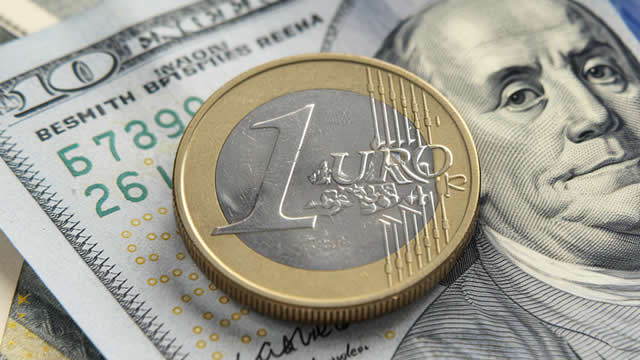EUR/USD Holds Steady Amidst Trump’s Auto Tariffs and Lenient Reciprocal Measures: A Look into the Currency Markets
In recent economic news, the European single currency, EUR, has been holding steady around the 1.08 mark against the US dollar, USD. This development comes as a result of President Trump’s decision to impose tariffs on European car imports and his signaling of lenient reciprocal measures.
Trump’s Auto Tariffs: A New Source of Tension
The imposition of auto tariffs by the Trump administration has been a source of tension between the US and the European Union (EU). The US has threatened to impose a 25% tariff on EU car imports, which could potentially lead to retaliatory measures from the EU. This uncertainty has caused some volatility in the currency markets, but the EUR has managed to hold its ground against the USD.
Danske Bank’s Analysis: Lenient Reciprocal Measures
According to Danske Bank’s FX strategist, Jesper Fjärstedt, the EUR’s resilience against the USD can be attributed to the fact that the Trump administration is signaling lenient reciprocal measures. Fjärstedt stated, “The market seems to be pricing in the fact that the US will not go too far with the auto tariffs and that the EU will respond in kind, but not with excessive measures.”
Impact on Consumers: Higher Prices for Cars
The potential impact of these tariffs on consumers is a significant increase in the price of cars. According to a report by the Center for Automotive Research, a 25% tariff on EU car imports could lead to a price increase of up to $6,800 per vehicle. This could result in fewer car sales, both in the US and in Europe.
Impact on the World: Trade Tensions Escalate
The escalating trade tensions between the US and the EU could have far-reaching consequences for the global economy. According to a report by the Peterson Institute for International Economics, a full-blown trade war between the two could lead to a decrease in global GDP of up to 0.8%. This could result in job losses, lower economic growth, and higher prices for consumers.
- Consumers in the US and Europe may face higher prices for cars
- Trade tensions between the US and EU could lead to a decrease in global GDP
- Job losses and lower economic growth are potential consequences of a trade war
Conclusion: Uncertainty in the Currency Markets
The situation with the EUR/USD exchange rate and the potential auto tariffs between the US and the EU highlights the uncertainty that currently exists in the currency markets. While the EUR has managed to hold its ground against the USD, the situation remains fluid and could change quickly depending on the actions of the Trump administration and the EU.
Consumers in both the US and Europe could face higher prices for cars if the tariffs are imposed, and the global economy could be negatively impacted by a full-blown trade war. It is important for individuals and businesses to stay informed about these developments and to consider how they may be impacted.





